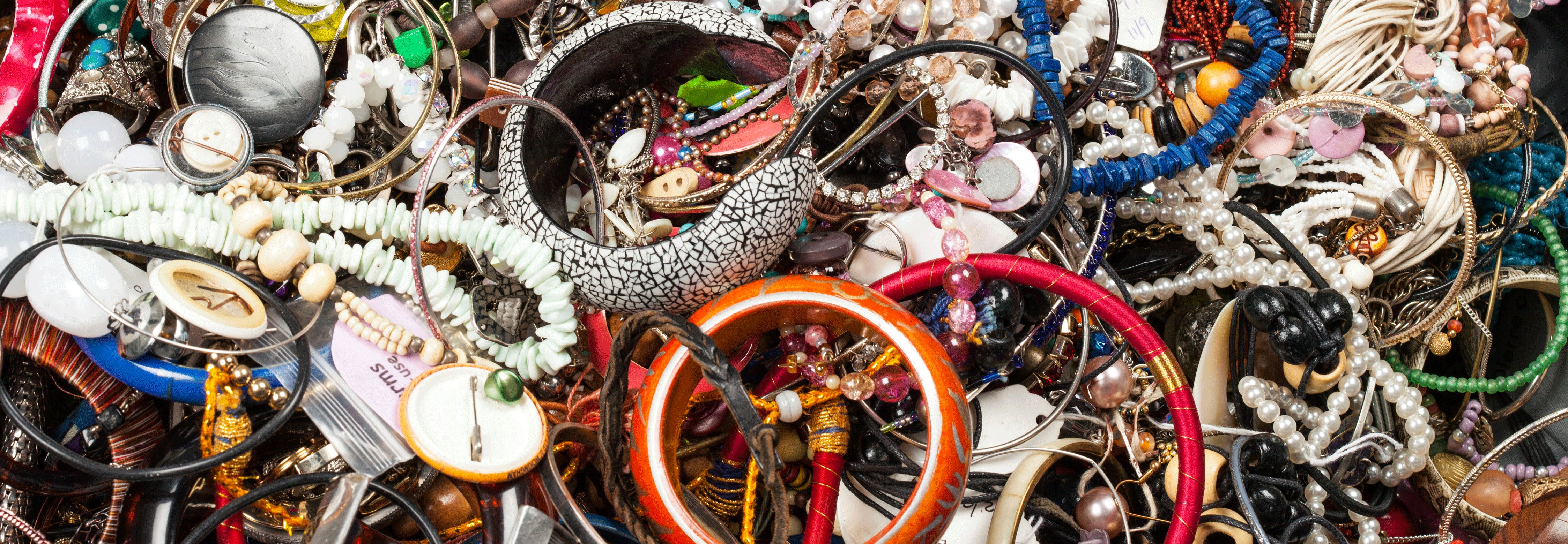Theory
Here you can read the digital version of our book. We hope you enjoy it!
We presented a paper at the Making Futures Conference in Plymouth over the 24th-25th of September 2015. Here is our abstract.
Abstract.
A brass bolt ring clasp dangles off the end, broken. A pin-less brooch, a tattered friendship bracelet, a ring with pealing layers of silver plating all mix with the plastic beaded necklace and broken clasp at the bottom of a jewellery box, both materially and meaning becoming entwined and entangled, until each of their individual status’s as useful decoration is reassigned to that of junk ready to be moved on, and cleared away. The plastic beads, the pin-less brooch and tattered friendship bracelet are rounded up and dumped unceremoniously into a plastic bag, no longer “objects of desire”, these objects have been consumed, their material remains waste, ready to be discarded.
The aim of this paper is to explore the entangled social relations of a specific commodity as its meanings and materiality transform, shifting between sites of disposal, production and consumption, crossing and expanding upon the boundaries of rubbish to crafted object. Traditional literature on consumption might see this as a linear process, from produced to consumed and from transient to rubbish, which arguably generates alienation and disenchantment. We explore these dynamics by means of ‘conceptual ethnography’ of a specific commodity and it’s site of consumption, that of the charity shop, which equally subverts and inverses this perceived linear process. By doing so, we view the site of disposal and subsequent consumption as a site of personalisation and reconstructed meaning.
Our paper investigates issues concerning the conceptual development and operational intricacies of staging JUNK, a performative and participatory installation project, which is motivated by social and ecological concerns, questioning through thought in action the intrinsic value of design and the value of recycled and upcycled materials. JUNK is commissioned to launch at the 125th year celebration of the Birmingham School of Jewellery in 2015 before it will tour. The creative transformation of rejected, unloved, broken and discarded jewellery, the JUNK, will be transformed by a team of jewellers in ‘making performances’ and concurrent exhibitions. The project experiments with innovative and collaborative design methodologies and a playful exploration of ideas of community economies and associated activities of exchange, bartering, gathering, earning, harvesting and giving. In today’s society when we think of re-using we imagine the recycling of packaging and unwanted consumer objects, we think of the up-cycling of consumer leftovers into a new and desirable luxury and consumable, while the changing status of the object and the relation between monetary value and design value are often ignored. In our visually biased society we focus on the object, the material. Recycling sees conversion of one object to another, ideally from unwanted to desired, but mostly in terms of new consumer product ready to buy. JUNK seeks to shake this presumption through making the entire process of creation the ‘work of art’, from material selection to (re)construction, the focus is shifted from the object to the social interactions and agency usually hiding behind it.
Keywords: Craft, participation, value, rubbish theory, reciprocity, disposal, consumption, re-seen, community economies, guerilla selling, objects of desire.
